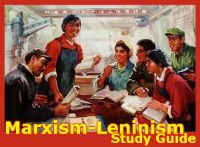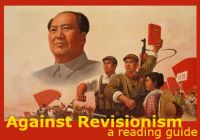 Following the successes of solidarity movements with Central American armed liberation struggles in the 1980s, U.S. imperialism invented the concept of the “narco-guerrilla”. It invented this concept in order to criminalize national liberation and discredit Marxist-Leninist people’s war, which has continued to challenge U.S. hegemony in the Third World. This Big Lie has since been told about organizations such as the Shining Path in Peru, the FARC-EP in Colombia, the Maoists in Nepal, and now it is being spread about the New People’s Army and the Communist Party of the Philippines. The following refutation of these lies is from the website of the National Democratic Front of the Philippines.
Following the successes of solidarity movements with Central American armed liberation struggles in the 1980s, U.S. imperialism invented the concept of the “narco-guerrilla”. It invented this concept in order to criminalize national liberation and discredit Marxist-Leninist people’s war, which has continued to challenge U.S. hegemony in the Third World. This Big Lie has since been told about organizations such as the Shining Path in Peru, the FARC-EP in Colombia, the Maoists in Nepal, and now it is being spread about the New People’s Army and the Communist Party of the Philippines. The following refutation of these lies is from the website of the National Democratic Front of the Philippines.
Subscribe via RSS
Unity & Struggle
Juergen on Celebrate the 100th Internatio… Harsh Thakor on The Quest for the Truth About… Tom Burke on Prisoner of the U.S. empire: C… mark h on Electoral Politics: Imperialis… mark h on Electoral Politics: Imperialis… Mike E on Electoral Politics: Imperialis… Mike E on Electoral Politics: Imperialis… carldavidson on Electoral Politics: Imperialis… The Marxist-Leninist on Electoral Politics: Imperialis… Stansfield Smith on Electoral Politics: Imperialis… Mike E on Electoral Politics: Imperialis… benoît Élie on Norman Bethune: “Wounds… Bill Johnson on Communist Party of Greece (KKE… B S Raju on Long Live the Universal Contri… willy bravo on New People’s Army wipes… 













- Marxism-Leninism Study Guide
- Against Trotskyism: A Reading Guide
- Reading Notes 2: Mao Zedong's "On Contradiction"
- Reading Notes 1: Mao Zedong’s “On Practice“
- Study Guide: Overview of Marxism-Leninism, the Science of Revolution
- Ten Essential Classics of Marxism-Leninism
- About This Site
- Mao Zedong's Five Essays on Philosophy: Reading Notes
- Study Guide: Ideological Struggle Against Revisionism
- Harry Haywood Archive
 Fight Back! News
Fight Back! News National Democratic Front of the Philippines
National Democratic Front of the Philippines- An error has occurred; the feed is probably down. Try again later.
 Popular Front for the Liberation of Palestine
Popular Front for the Liberation of Palestine- An error has occurred; the feed is probably down. Try again later.
 Colombia Action Network
Colombia Action Network- An error has occurred; the feed is probably down. Try again later.
 Network to Fight for Economic Justice
Network to Fight for Economic Justice- An error has occurred; the feed is probably down. Try again later.
Index
Afghanistan Ahmad Sa'adat anti-imperialism anti-revisionism Anti-War / Anti-Intervention Armed Struggle Barack Obama Black Liberation Carlos Montes Class Struggle Colombia Colombia Action Network Committee to Stop FBI Repression Communist Party of Great Britain (Marxist-Leninist) Communist Party of the Philippines CPGB-ML CPN-Maoist CPP crisis DPRK economic crisis FARC-EP Fight Back! Freedom Road Socialist Organization FRSO Gaza Gloria M. Arroyo guerrilla warfare Harry Haywood Imperialism Iraq Israel John McCain Jose Maria Sison Kosta Harlan Labor Movement Latin America Lenin Mao Maoist Thought Marxism-Leninism Mass Line National Democratic Front of the Philippines National Liberation national oppression national question Nepal New Democracy New People's Army Palestine People's War PFLP Philippines police repression political economy political prisoners political repression Popular Front for the Liberation of Palestine Prachanda Protracted People's War racism Republic Windows and Doors Revolution Revolutionary Armed Forces of Colombia - People's Army sds self-determination Socialism South Asia Stalin Students for a Democratic Society theory Tom Burke Trade Unions video ZionismBlog Stats
- 1,763,366 hits
Workers and Oppressed Peoples of the World, Unite!


 The following is reposted here from the
The following is reposted here from the  The following article by Indra Mohan Sigdel ‘Basanta’ is from
The following article by Indra Mohan Sigdel ‘Basanta’ is from 







